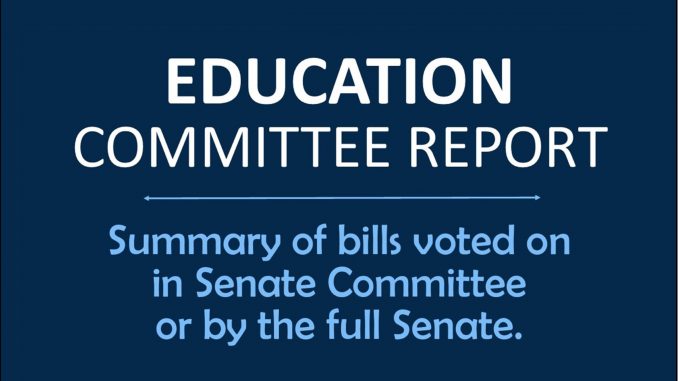
SSB 1057 – Expanding HSED pathways for adult learners
SSB 1083 – Iowa Tuition Grant cap amount removal
COMMITTEE ACTION:
SSB 1057 expands the ways in which Iowa can issue high school equivalency diplomas (HSED). The Iowa Department of Education issues a diploma/HSED when an applicant passes minimum standards in core areas of reading, language arts, literacy, mathematics, science and social studies. Currently, an applicant must submit an application to a testing center. Under the bill, an applicant could go to the testing center or to a high school equivalency program. One of these pathways is required to show a student’s competence in core areas.
The bill requires the Department of Education to prescribe assessments and resources, and strikes a requirement that the director adopt tests. This will allow the State Board of Education to expand the pathways a student/applicant could take to show competence in an area, beyond taking a test. This is similar to what other states have done. Other pathways will include a test battery, credit-based measures, and attainment of other academic credentials of equivalent or greater rigor.
The committee adopted a technical amendment to fix a typo.
[2/22: short form]
SSB 1083 removes the $6,000 cap on the Iowa Tuition Grant (ITG), which is awarded to qualifying students attending an Iowa private college or university. The ITG has not yet reached an appropriation amount that would allow an award of more than $6,000. However, if the Legislature appropriated the Governor’s proposed 2 percent increase for the Iowa Tuition Grant, the awards could go over that amount next year. Currently, the amount of an ITG is limited to the lesser of the student’s financial need, $6,000 (the cap), or the total tuition and mandatory fees for two semesters at the Regents universities.
As the bill was written, the new Iowa Tuition Grant award could be up to $20,000 since the bill says “the lesser amount of a student’s financial need or an amount equivalent to Regents fees or tuition.” Since the bill originally said “or,” and the bill removes the $6,000 cap, a student could qualify for the full tuition and fees for a private university, if that was their financial need. That was not the author’s intent. The committee adopted an amendment to clarify the ITG could be no more than a student’s financial need, or the average tuition and fees for a Regent’s university for the same period.
[2/22: short form]
